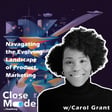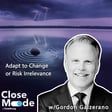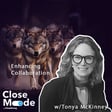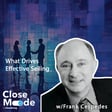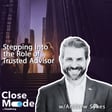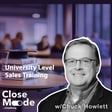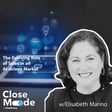
Sales, Methodology, & Performance: An Honest Conversation w/Philip Aaronson
In this episode, Brian Dietmeyer talks to Philip J Aaronson, former Director of Sales Enablement at Microsoft, about the intricate world of sales methodologies and their impact on sales productivity. They dive into the nuances of integrating and measuring sales methodologies effectively within organizations, and the challenges of aligning sales operations with broader business goals. This episode is crucial for anyone involved in sales or sales enablement seeking to understand the complexities of operational alignment and to enhance their strategic approach to sales productivity. Tune in for insights and strategies that could redefine your sales processes, right here on CloseMode.
Timestamps:
00:00 Refine organization methodology for sales productivity measurement.
03:12 Endorsed by Bill McDermott, CEO at ServiceNow.
07:24 Companies struggle with operational focus on predictions.
10:50 Discussing importance of sales reps' ability and training.
14:10 Sales team struggling with multiple methodologies frustration.
17:47 Understanding needle, tying into priorities, overcoming challenges.
19:11 Understanding buyers, marketing, and enabling successful sales.
22:49 Research showed value prompts impact deal closure.
27:40 High-pressure work on reports and global impact.
29:12 Emphasizing methodology overlooks design and context.
34:06 Need collective buy-in for productivity ecosystem.
36:19 Top salespeople not always great in ops.
40:49 Execute discovery to gain a seat. Appreciative.
43:15 Strong agreement and gratitude towards producer Dan.
